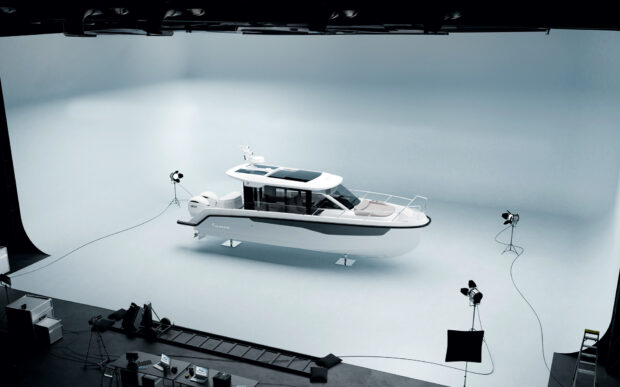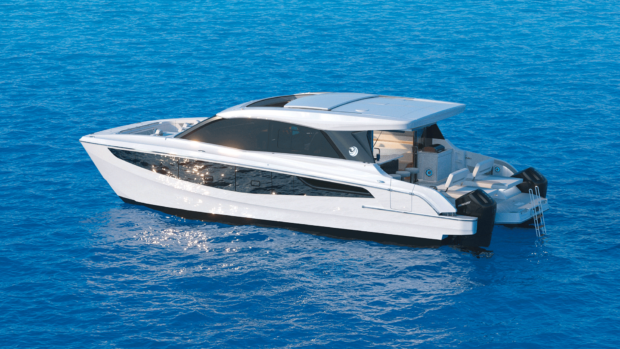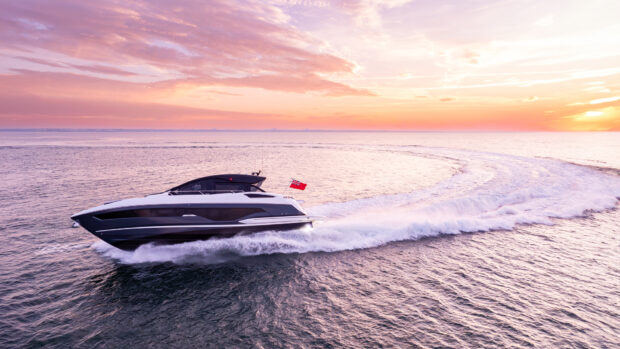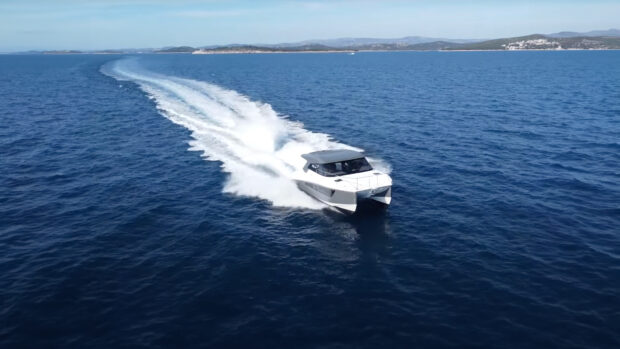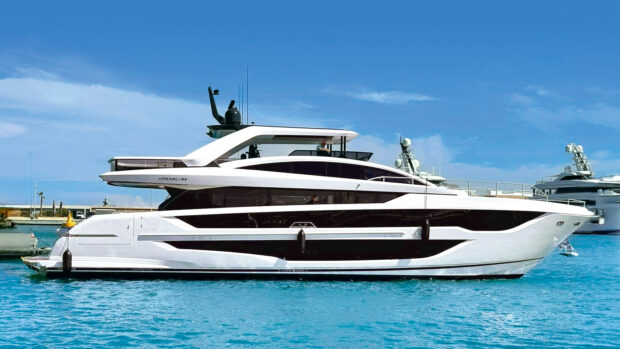Seatrials prove that fuel efficiency can be boosted up to four times present figures, an American firm claims
Ohio-based Zyvex Technologies has announced that its 54-foot boat, Piranha, has completed six months of extensive
testing and displayed a record reduction in fuel consumption.
Piranha completed its final seatrial, an approximate 600
nautical mile rough-weather sea test off the shores of Washington
and Oregon using only 12 gallons of fuel per hour instead of the 50 gallons expected of a conventional aluminum or fibreglass boat cruising at 25 knots, Zyvex claims.
The secret lies with the technology company’s use of products incorporating nano-enhanced materials that are 40% stronger than metals, such as aluminum, and result in significant weight reduction and increased fuel efficiency.
Made with advanced carbon fibre infused with carbon nanotubes (CNTs), which are extremely small structures built up out of carbon molecules, Piranha weighs in at 8400 pounds. Compared to boats of similar size that typically weigh 40,000 pounds, the Piranha is 75% lighter, making it easier to transport and cost-effective to operate.
“Our chemists molecularly engineer better materials and our designers and engineers make the world’s strongest materials more useful,” says Lance Criscuolo, president of Zyvex Technologies. “Metal boats have come a long way over the past 150 years, but it’s only possible to reach new standards of performance using
next-generation advanced composite materials.”
Piranha can travel 2800nm without refueling and has operated in open-ocean conditions with waves exceeding 12 feet. Russell Belden, vice president of Zyvex Technologies, notes that other similar sized vessels built from heavier materials can only travel 450nm without refueling and have limited rough-weather performance.
“The lightweight Piranha delivers significantly better fuel efficiency and capability than any vessel this size. The most expensive part of operating a boat can be the fuel costs. Since Piranha gets 2.5 miles per gallon going 25 knots, its operators would only spend one fourth as much on operating costs,” said Belden.
Zyvex says that defence contractors are evaluating the Piranha for use as an unmanned platform with a variety of mission applications, including anti-piracy, harbour patrol, and oceanographic surveying.




